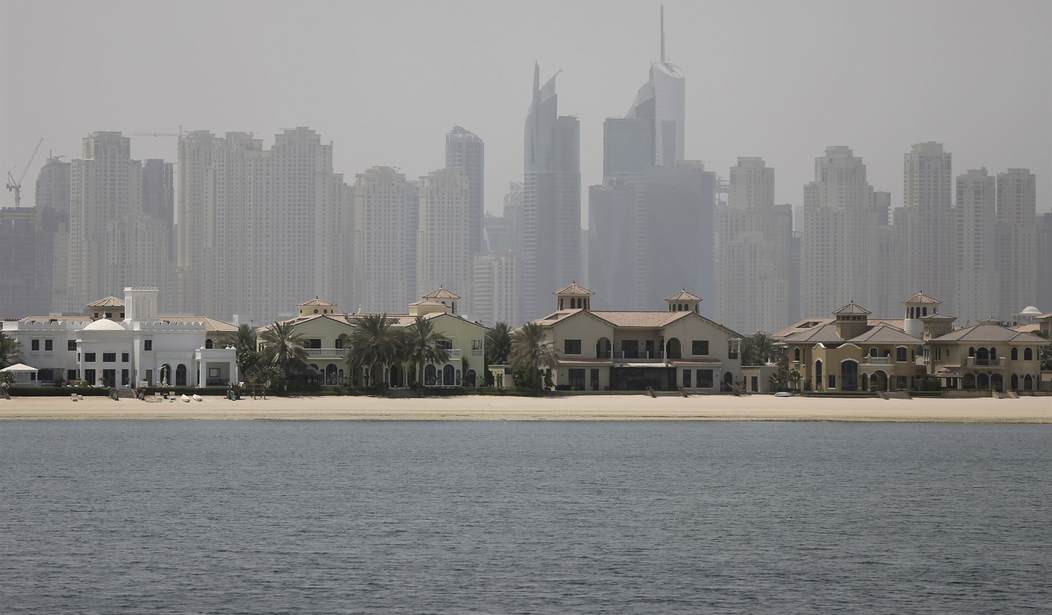When I arrived in Dubai two weeks ago as the guest of billionaire business mogul Khalaf Ahmad Al Habtoor, I expected to witness the opulence and luxury for which the United Arab Emirates has become renowned. What I did not expect, however, is to find an advanced, modern society with serious ambitions toward global leadership. Needless to say, I was pleasantly surprised.
One of the burning questions I had was one that many of my fellow Americans shared: How could we proceed with our close relationship with our Arab brothers and sisters in the wake of the publicized murder of journalist Jamal Khashoggi in the Saudi Embassy in Turkey this past October? Surely, America, which has espoused and actively promoted human rights around the world would have questions about why a journalist was so brazenly and brutally killed in a diplomatic consulate in a foreign country.
As I began to explore the question with colleagues in the Arab media, a much more complicated picture began to emerge. While the crime against a fellow journalist was widely condemned in the Arab media, many Arabs also felt that the tragedy was being used to embarrass them and paint them as a backward society. It was not fair, they said to me during our frank discussions, that Khashoggi's killing continued to make front-page news in the western media, when there are hundreds of thousands of other tragedies involving innocents and journalists. They believed that when embarrassing instances involving rogue U.S. soldiers who tortured prisoners at Abu Ghraib prison in Iraq were revealed to the world, most Arabs understood that these were the actions of a few rogue soldiers -- not a testament to the character of the American people. They only asked to be treated similarly.
Recommended
Furthermore, they asked, why was the Khashoggi affair being judged in the media in the first place? Saudi Arabia, they said, has a robust legal system and was conducting its own investigation and trials into the matters; they were more than capable of bringing the guilty parties to justice. While certain facts are known -- namely, that Khashoggi walked into the Saudi consulate in Turkey and never emerged alive -- many facts remain to be discovered. For example, what was the motive of the crime? Did the Turkish authorities have advance notice that Khashoggi's life may have been in danger? If so, did they have a responsibility to warn him or intervene?
Of particular importance, however, is the fact the relationships between the U.S., Saudi Arabia and the United Arab Emirates have been beneficial to all involved. The U.S. has benefitted economically from having access to the region's vast energy resources and investment in the U.S. Meanwhile, the region has benefitted from the security arrangements put in place by the U.S. government, which have afforded them peace and prosperity for the better part of a century. The notion that all of this could be put in jeopardy because of a tragic crime against one person seemed odd and reckless, given what is at stake for the region and the world.
The Arab perspective on news, information and the media is tailored around Arab values -- the values of family, morality and the rule of law. Unlike in America where we have the First Amendment, which protects journalists from government interference, the Arabs see the media as a political actor. They hold the highest standards of reporting to provable facts and have very strict laws against publishing false and misleading information. From their perspective, these restrictions help hold the media to a higher standard of reporting the facts in a balanced way.
This view also extends to almost all other parts of the Arab society. Their society is held together by a strong sense of moral and families values, which starts at the household level and goes all the way up to the legal and political system of the country. Dubai, for example, has been compared to Las Vegas because of its opulence and luxury. But in almost all other respects, it is the complete opposite. There is almost no crime in Dubai, no drugs, alcohol or pornography, and everyone is treated with dignity and respect. The reality is that women are protected; there is very little sexual harassment or child abuse. The society strictly enforces moral values and insists that everyone adheres to them.
While their approach may be widely criticized in the West, in many respects, it is the envy of the world in terms of achieving a society of peace, civility and prosperity. While we may criticize their rule of law, it works when people adhere to the standard instead of practicing moral relativism. Seeing the fruits of morality in Dubai makes one wonder whether our society here in the West may have gone too far in terms of accommodating immoral behavior to preserve the mantle of "freedom."
It is truly remarkable that Dubai and the other Emirates have managed to build a modern and robust society that reflects their own values of moral excellence. Americans who admire their society should keep this in mind and try to consider whether there are lessons to be learned here at home.

























Join the conversation as a VIP Member